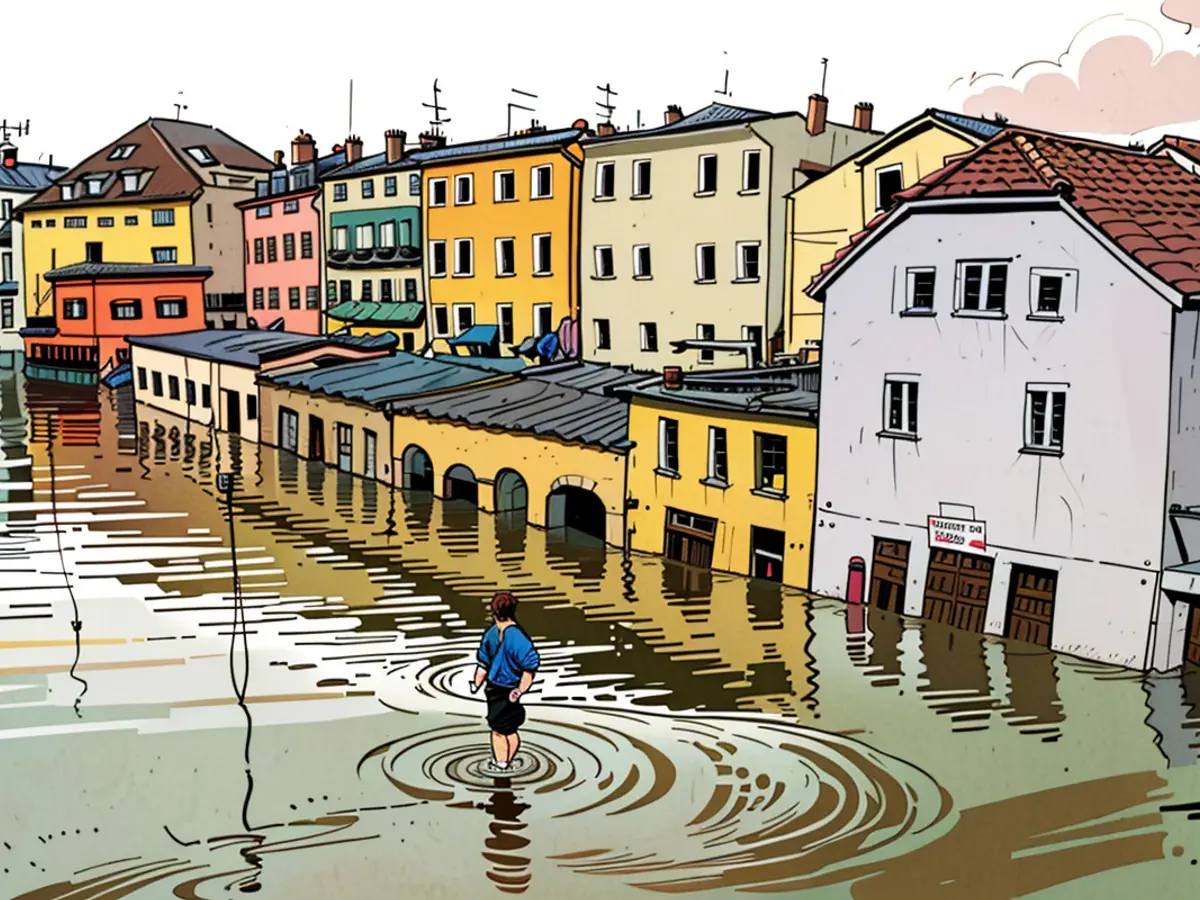Mandatory disaster insurance legislation: Nations seek compliance - industry voices concerns
It's no surprise that the reduction in prevention measures against natural disasters such as floods might decrease – both by the government and the citizens themselves, as stated by GDV-CEO Rollinger. People tend to rely on the assumption that insurances will provide some sort of compensation. Homeowners need to make their own decisions about securing their properties as it's their personal responsibility, Rollinger added.
The discussion surrounding mandatory insurance against elemental damages has resurfaced, with the flood disaster in Bavaria and Baden-Württemberg in early June reigniting the debate. The viewpoints have become more polarized.
The federal states are pushing for the federal government to propose a mandatory insurance for extreme weather damages, as per a Bundesrat resolution. A significant portion of the traffic light coalition supports this, but the FDP remains opposed. Federal Justice Minister Marco Buschmann (FDP) reiterated his opposition on Wednesday, citing more bureaucracy and increased costs for many people. Instead, he supports a supply obligation.
This topic is expected to be discussed at the Bund-Länder summit on Thursday. I believe that "we're going to witness even more extreme weather events in the next few years", said Hesse's Minister President Boris Rhein (CDU), who currently chairs the Minister Presidents' Conference. "That's why it's high time to act on mandatory insurance for extreme weather damages." All voluntary models have failed to achieve the desired result, and the emphasis is now on solidarity.
Bavaria's Minister President Söder criticized the Liberals sharply. "What other catastrophe does the FDP need to realize that it's about the common good?", he said in reference to the flood disaster and Buschmann's rejecting stance. "We will continue to be impacted by floods in Germany." The damages could also continue to escalate.
Thuringia's Minister President Bodo Ramelow (Linke) told the "General-Anzeiger" and the "Rheinische Post" that if elemental damages were insured compulsorily, "people could alleviate the worry that they would suddenly be left bankrupt after a damage event". This would then be shared "like car insurance on many shoulders".
A Verivox survey of 1014 private homeowners found that a clear majority of 71% support a mandatory insurance. 81% also favor insurers being obligated to present an offer to all. However, 34% cannot afford any additional costs for their residential property, and 20% can only manage an additional 2000 Euros annually. The survey was conducted at the end of May, before the latest flood in southern Germany.
Read also:
The call for mandatory insurance against natural disasters, particularly floods, is gaining traction in Germany, following the incidents in Bavaria and Baden-Württemberg. This proposal is strongly advocated by several federal states.
However, the FDP, a key player in the traffic light coalition, remains opposed to this compulsory insurance, citing potential increased costs and bureaucracy.
The industry, represented by GDV-CEO Rollinger, while not opposing the idea altogether, emphasizes the importance of individual responsibility in securing properties.
The debate continues to polarize views, with supporters arguing that solidarity and shared responsibility are necessary, while opponents stress the need for voluntary participation and affordability.
Markus Söder, the CSU leader and Bavaria's Minister President, has criticized the FDP's stance, expressing concern about the continued impact of floods in Germany.
A majority of homeowners, according to a Verivox survey, support the idea of a mandatory insurance, with 81% favoring obligatory offers from insurers. However, affordability remains a concern, with 34% unable to handle any additional costs.
The issue of mandatory insurance against natural hazards is expected to be discussed at the Bund-Länder summit. The summit will likely see a clash of views, with the federal government, the traffic light coalition, and several federal states pushing for the insurance, and the FDP opposing it.
Deutschlandfunk and the Augsburger Allgemeine have reported extensively on this topic, providing different perspectives and analyzing the potential implications of the compulsory insurance.
The calls for mandatory insurance against natural disasters have gained momentum, with each extreme weather event serving as a reminder of the need for prevention and solidarity.







